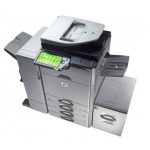
Cadmop – 4
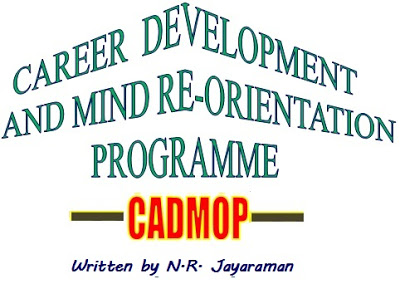
4
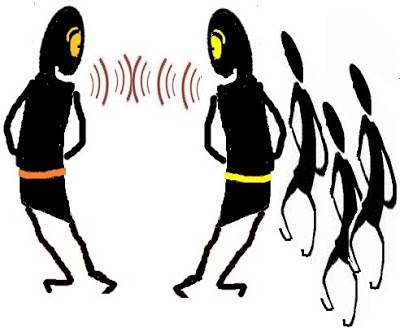
Communication
Communication is a key competency issue for supervisors. Communication means conveying some message either verbally or in writing. The Supervisors are responsible for communicating with every one within the organization in the manner understandable by them. One of the most important part of communication is reporting on technical issues and the other on employees’ behavior. Communication also covers conveying the messages from higher ups to the employees or vice verse at times of dispute or some program being envisaged for better productivity.
To communicate the messages in the most appropriate and clear manner certain amount of practice will be necessary. Therefore every Supervisor will have to develop their own skill in communication unless otherwise the official mode of communication has established standard within the organization. The back door communication in unofficial manner is different if the Supervisor and the higher officials are in secret agreement to keep in knowledge whatever is happening in the work units so that at the time of crisis such information may be helpful. This is mostly practiced by every industry.
However there may be established formats in which the technical issues like breakdown of machineries and equipments or technical snags affecting productivity are reported, while reporting the indiscipline, insubordination or quarrel amongst workers affecting productivity will be different and there can not be established formats as each case will be different versions. The reporting on such matters should be clear in all senses instead of loading them with unwanted narration like that of story writing. To develop the art of clear communication, the Supervisors are therefore advised to read in their leisure time the earlier written reports available in their units and learn from them.
These two types of communication are very important in an organization and the manner in which such communication is made will automatically reflect the efficiency of the Supervisor. Sometimes the communication may remain verbal followed by written one on the same subject at later stage. In such cases the Supervisor may have to be cautious a in maintaining the same true content, lest changes in tone and tenure may fire back on them. Therefore it would be safe for the Supervisors to diaries such events and expressed views for future references.
In respect of productive activities, the Supervisors are responsible for evaluating the preliminary results achieved against the targets and communicating the results to their manager as and when asked. Before submitting the results the draft for communication is prepared detailing the reasons for failure in meeting the targets along with his own expert opinion conveying how best such gaps could be addressed in future. Let us now briefly see how the reporting is done.
Reporting on Technical matters
In the case of technical problems or breakdown of the machineries or equipments the Supervisor’s note should give a brief account of the problem covering technical aspects- whether such a problem was noticed earlier, their causes and how they were addressed earlier without narrating like story telling. Generally the short but pointed technical notes are submitted to take quick decisions and interim funding wherever needed. One can follow a system of their own manner in reporting, which however should match with past reports on similar problem so that when compared they will reveal uniformity before taking appropriate decisions.
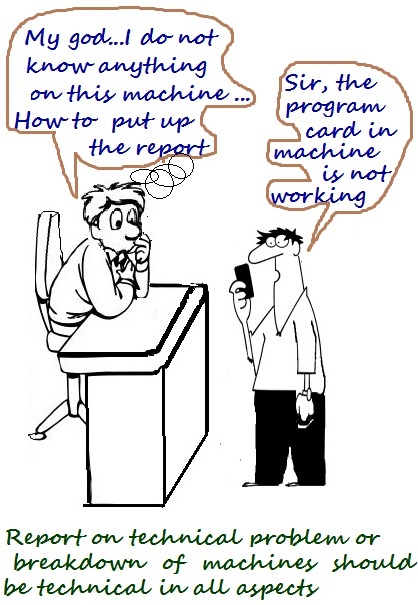
- This is why the best Supervisors always keep a personalized diary recording day to day events and technical problems noticed in the day to day work which may have surfaced time and again and how they were addressed. Such dairying will come very handy while reporting technical issues in the most appropriate manner.
- Every Supervisor may make it a practice to timely communicate the technical problem that affected productivity on its first occurrence itself to proper authorities concerned like maintenance department. Always ensure that the details of the technical problem is fully documented with due date and time of their occurrence and all such documents are carefully kept in file. The details in such documents may contain the following:
- The type of problem that occurred.
- How frequently the problem recurred.
- The details may include date, day and time.
- Nature of problem – whether the machine itself malfunctioned or malfunction occurred due to wrong operational technique of the employee. If so the details.
- Changes in setting, parts replaced if any to correct the problem.
- The names of personnel who attended the problem.
- The total time taken to set right the problem or improvement made.
- Whether it was operational error, or mischief by some one or machineries and equipments malfunctioned.
- How did the mishandling occur.

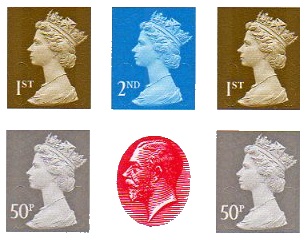
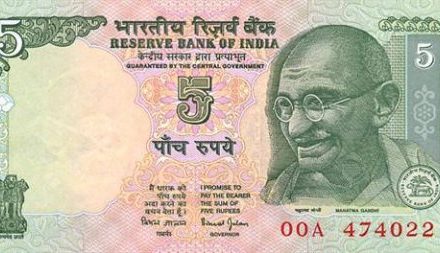







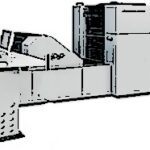
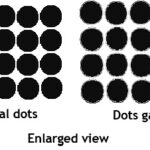
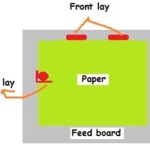
Recent Comments